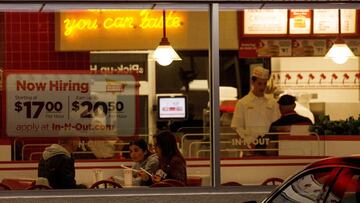Can you get unemployment benefits in California if you quit your job?
To receive unemployment benefits, there are strict eligibility requirements that must be met. What are these requirements in California?


As of the end of April, approximately 464,000 employees in California were claiming unemployment benefits. Throughout 2023, the average weekly payout for beneficiaries has remained slightly above $360, equating to a monthly sum of $1,440.
These low benefit amounts are nothing to write home about and are only available to a fraction of all workers who find themselves without a job, either voluntarily or involuntarily. Currently, the unemployment rate in California stands at 4.4 percent —one point higher than the national average.
Read more from AS USA:
Can you quit your job and receive unemployment benefits?
In just January and February of this year, 788,000 workers quit their jobs in the Golden State, many of whom left in search of higher wages and better working conditions. However, not all of these workers are eligible to receive unemployment benefits since one of the eligibility requirements states that a person must be unemployed “through no fault of your own.”
To quit and receive unemployment benefits, the state says that the worker “must prove good cause for quitting.” Leaving a job for better pay elsewhere would not qualify as a reason to receive benefits. But, if a worker was being harassed or retaliated against or had any of their other labor rights violated, they may have grounds to submit a claim to receive benefits.
Applying for unemployment? A little preparation goes a long way!
— EDD (@CA_EDD) May 12, 2023
Avoid common errors associated with verifying your identity.
⬇️
Review the top 9 reasons your document may be rejected: https://t.co/YDXkc0pHs4#Unemployment #Unemployed #California pic.twitter.com/xnqRTjpS0W
What other requirements must be met to receive unemployment benefits?
Related stories
Salaried employees are eligible to enroll in unemployment insurance, while most independent contractors cannot claim benefits in most cases. This distinction has to do with the different taxes paid by workers depending on their classification. There are also income requirements, and the state has created a handy calculator to see whether or not one’s wages rose to the level necessary to make a claim.
Can one work and claim unemployment benefits?
In some cases, yes. A person cannot work full-time but may remain “partially employed” while claiming benefits. However, a person receiving benefits must be willing to work and physically able to do so. The state has imposed work search requirements to receive benefits.
